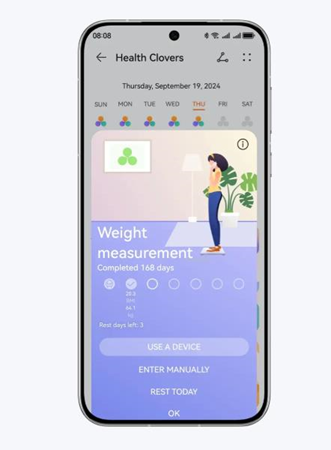Can Weight Loss Contribute to Blood Pressure Reduction?
Weight
loss is widely known for its numerous health benefits, but did you know it can
also have a significant impact on your blood pressure levels? High blood
pressure, or hypertension, affects millions of people worldwide and is a
leading risk factor for cardiovascular diseases, including heart attacks and
strokes. Maintaining healthy blood pressure is vital for long-term heart
health, and one of the most effective ways to achieve this could be through
weight management. In this article, we’ll explore the connection between weight
loss and blood pressure reduction, supported by scientific research and
practical tips.
How
Does Weight Loss Affect Blood Pressure?
The
Science Behind Weight Loss and Blood Pressure
When
you lose weight, your heart doesn’t have to work as hard to circulate blood
throughout the body. Excess weight puts extra strain on your heart and blood
vessels, which can increase the force of blood against artery walls—leading to
high blood pressure. By shedding pounds, you reduce the workload on the heart,
which can lower blood pressure significantly. This is especially true for
individuals who are overweight or obese, as even a modest reduction in weight
can lead to substantial improvements in blood pressure levels.
Understanding
Hypertension and Its Causes
Hypertension,
or high blood pressure, occurs when the force of blood against your artery
walls is consistently too high. This condition can develop due to a variety of
factors, including poor diet, lack of physical activity, stress, and genetics.
Excess weight directly contributes to hypertension because it increases the
amount of blood the heart has to pump to supply oxygen and nutrients to the
body. This added effort increases the pressure on your arteries. Losing weight
can address one of the primary causes of high blood pressure and help mitigate
this risk.

Can
Losing Weight Lower High Blood Pressure?
Research
and Studies on Weight Loss and Blood Pressure
Numerous
studies have shown a strong connection between weight loss and blood pressure
reduction. Even a modest amount of weight loss can have a significant impact on
lowering blood pressure. For example, the National Heart, Lung, and Blood
Institute (NHLBI) suggests that losing just 5-10% of your body weight can
result in meaningful reductions in both systolic and diastolic blood pressure.
This research underscores the importance of weight management in controlling
hypertension and highlights how losing weight can be a powerful tool for
improving heart health.
How
Much Weight Loss is Needed for a Significant Drop?
While
losing any amount of weight can lower blood pressure, more significant
reductions in body weight tend to lead to greater improvements. Generally, for
every kilogram (about 2.2 pounds) of weight lost, blood pressure can drop by
approximately 1 mm Hg. Therefore, a goal of losing 10 pounds may reduce
systolic blood pressure by 5-10 mm Hg. This reduction can make a significant
difference in your overall health, especially if you are on the edge of high
blood pressure or are already diagnosed with hypertension.
Tips
for Effective Weight Loss to Lower Blood Pressure
Healthy
Diet Choices for Blood Pressure Control
A healthy diet is essential for both weight loss and blood pressure control. Focus on a balanced diet that includes plenty of fruits, vegetables, whole grains, and lean proteins. food to reduce blood pressure, such as those rich in potassium, magnesium, and calcium, should be emphasized. Reducing your intake of sodium is one of the most important steps you can take to manage blood pressure. Processed foods and high-sodium snacks should be limited in your diet. Following a proven diet like the DASH (Dietary Approaches to Stop Hypertension) diet can be incredibly helpful. This eating plan emphasizes foods that are rich in magnesium, potassium, and calcium, all of which are beneficial for blood pressure regulation. Using a tool like the Huawei Watch D2 can help you monitor your blood pressure as you make these dietary changes, providing real-time insights into how your diet impacts your health.
Importance
of Regular Physical Activity
Incorporating
physical activity into your routine is another key factor in both weight loss
and blood pressure management. Aim for at least 150 minutes of
moderate-intensity exercise each week. Activities such as brisk walking,
cycling, swimming, or jogging can help you burn calories, shed pounds, and
improve cardiovascular health—all of which contribute to lowering blood
pressure. Additionally, stress-reducing exercises like yoga and Tai Chi can
further help manage blood pressure by promoting relaxation and calming the
nervous system. Using a device like the Huawei Watch D2 can help you track your
exercise progress and monitor your blood pressure in real time, ensuring that
your fitness routine is effectively supporting your health goals.

Additional Lifestyle Changes to Complement
Weight Loss for Blood Pressure Management
While
weight loss can significantly reduce blood pressure, it's important to combine
it with other healthy lifestyle changes. Limiting alcohol consumption, quitting
smoking, and ensuring you get enough quality sleep can all contribute to
healthier blood pressure levels. Monitoring your blood pressure regularly is
also crucial in managing hypertension. Devices like the Huawei Watch D2 offer a
convenient way to track your blood pressure continuously, providing you with
real-time data and helping you stay on top of your health progress.
Conclusion
Losing
weight is closely linked to blood pressure reduction. By reducing strain on the
heart and arteries, weight loss significantly improves cardiovascular health.
Research shows that even modest weight loss can lower blood pressure, with
greater reductions providing more benefits. A healthy diet, regular physical
activity, and lifestyle changes support weight loss and better blood pressure
management. Tools like the Huawei Watch D2 help track progress and stay
motivated. The benefits of weight loss go beyond appearance, protecting your
heart and reducing hypertension risk, helping you take proactive steps for a
healthier life.







